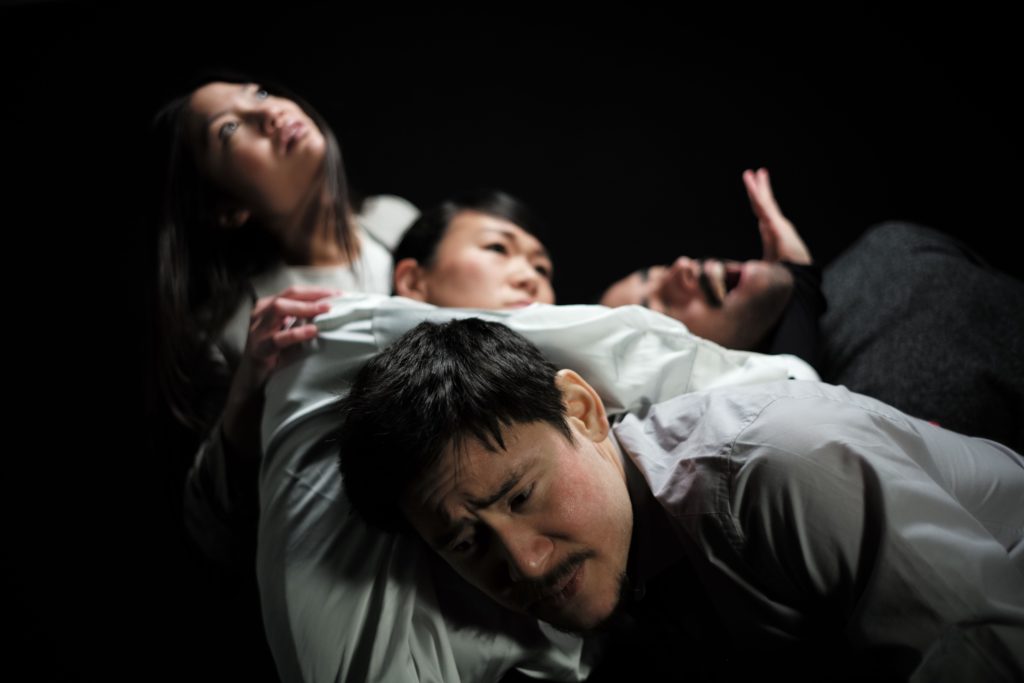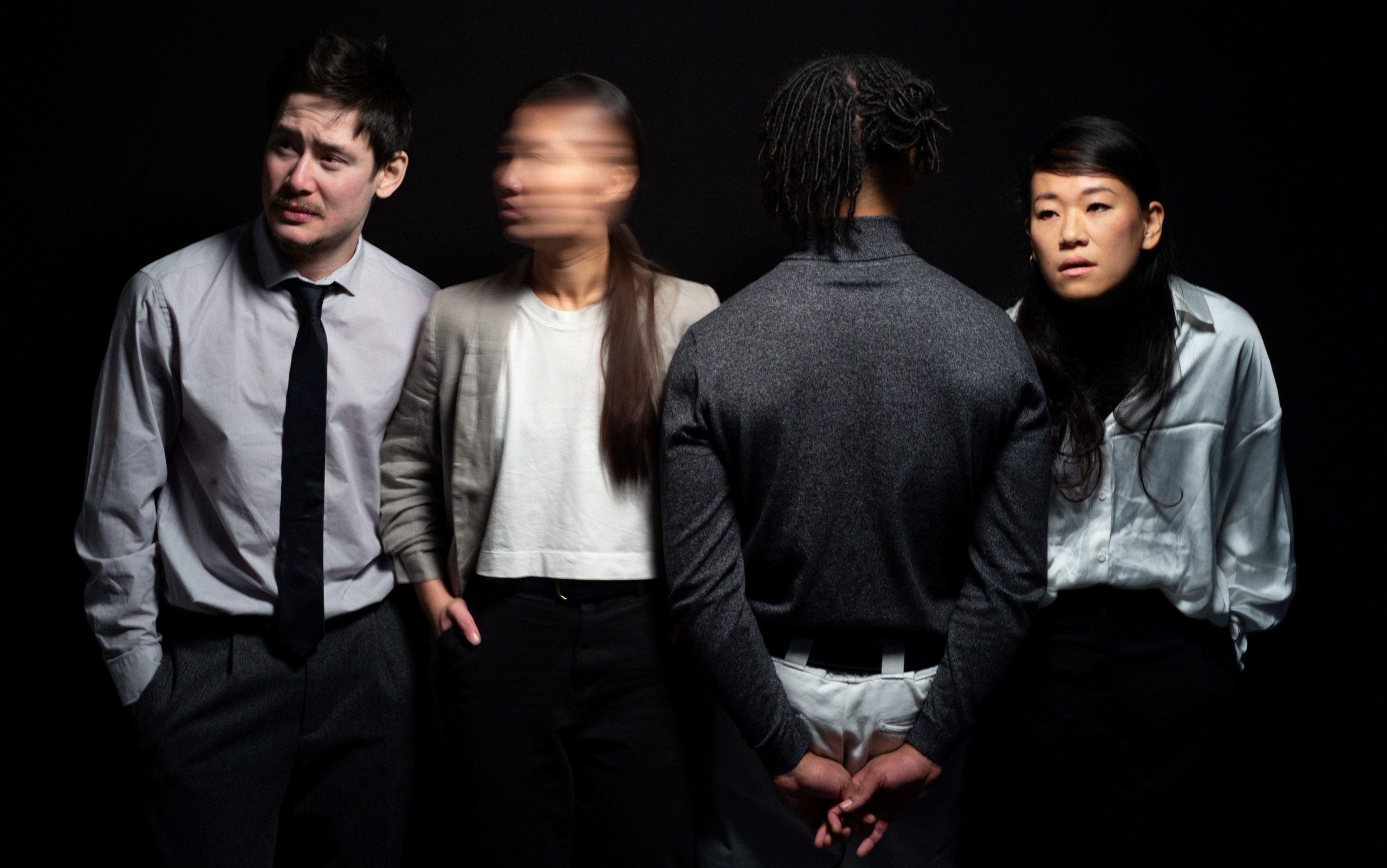Words by Paula Riofrio.
Has your mind or body hurt so badly that you were unable to do the things you love? …and wait, you still have to go to work.
Saving Face delves into the professional and personal struggle of humanhood. Multifaceted artist Si Rawlinson choreographs the life of four characters during working schedules and after office encounters. The clock marks, with stress, boredom and repetition the laborious hours of the four protagonists: a choleric yet sanguine lead manager, a new exploited employee and two old, moderately shameless, colleagues; performed by Yukiko Masui, Lisa Chearles, Jamaal O’Driscoll and Rawlinson himself.
The tension was perfectly threaded by romance, physical gags, storytelling and choreography. The dance composition was an ethereal abstraction of emotions even inside the highly pedestrian context of an office. Early career, Lisa Chearles, undertook the role of Jackie. Her first solo was a routine of dynamic staccatos expressing her muteness. As the story developed, her movement promptly connected the audience to her pain, fear and exhaustion. Sam, Rawlinson’s character, externalised his feelings in and out of the skin. His body relented to the moods on his head, finding an outlet through a hip hop based but non-limit-by movement. Leslie, embodied by Yukiko Masui, dissolved the boundaries between acting and dancing, bespeaking-displaying the depths of a performer.

The show left me wondering if there is a need for catharsis in every performance. For the ones attending theatre in search for deep emotions, as medicine, yes, but there are other audiences. A dance prevailing physical theatre comedy would be perhaps too generic to describe the nature of Saving Face. It was a hybrid scenic game, and it was very much alive; even facing dramaturgical challenges. Their last performance at The Place, London, had five people on stage, not four. O’Driscoll had to adjust his week-old injury into a story. Amy, his ‘carer’ stepped onto the stage and moved along shadowing, mirroring and expanding O’Driscoll’s character. She was emotionally and energetically connected, adding a second pace to the character. Suddenly everyone inside the stage started yelling at each other, blaming each other. Their worst nature came out under pressure, only noisy and confusion. At the end there was no great revelation, everydaylife, the value and the intricacy of everyday life.
Saving Face leaves me with many questions. Where and for what reason do we draw a line between our personal and professional life? Is sentiment too free and not so ethical? What does it mean to be human? Engels, German philosopher, wrote about the role of work in the evolution from apes into humans. Ultimately, does work humanise or dehumanises? Comedy seems to be the only way out, or within on that quest. What I can tell now, is that laughing could be a kind of cathartic process.
